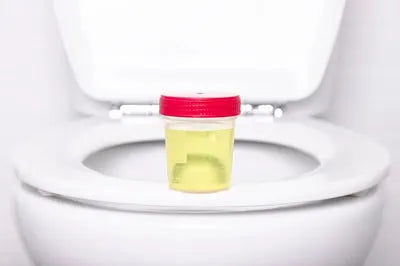Have you ever noticed your trips to the bathroom becoming less frequent, leaving you uneasy and wondering what’s happening inside your body? Imagine the frustration of feeling bloated and heavy yet barely passing any urine. That unsettling sense of imbalance and the nagging worry about whether something is wrong can be distressing. Urination is not just a routine function. It is your body's way of flushing out toxins and keeping everything in harmony. When urine output suddenly drops, it is natural to feel anxious. Whether you are caring for a loved one, facing personal health struggles or dealing with the challenges of incontinence, understanding the cause of decreased urine output is essential for peace of mind and well-being.
Causes of Low Urine Output
Decreased urine output is called oliguria. It is when the body produces less than 400 millilitre of urine per day. It can be caused by several factors, ranging from mild dehydration to severe medical conditions. Understanding the root cause can help manage and potentially reverse the condition. Some common causes include:
-
Dehydration:
One of the most common reasons for decreased urine output is insufficient fluid intake. When the body lacks adequate hydration, it conserves water, leading to reduced urination.
-
Kidney Issues:
Conditions such as kidney infections, kidney stones, or chronic kidney disease can impair kidney function, reducing urine production.
-
Urinary Tract Obstruction:
Blockages in the urinary tract, caused by an enlarged prostate, bladder stones, or tumours, can restrict urine flow.
-
Medications:
Certain drugs, including diuretics, antihypertensives, and nonsteroidal anti-inflammatory drugs (NSAIDs), can affect urine production.
-
Severe Infections or Sepsis:
Infections that cause significant inflammation can lead to decreased kidney function and reduced urine output.
-
Heart Conditions:
Heart failure can reduce blood flow to the kidneys, leading to a decline in urine production.
-
Incontinence and Urinary Retention:
In some cases, individuals with incontinence may struggle with controlling their bladder, leading to frequent leakage but reduced overall urine output.
Also Read: Mixed Urinary Incontinence: Symptoms, Causes & Treatment
Symptoms of Low Urine Output
Identifying the symptoms associated with low urine output can help in early intervention and appropriate treatment. Some signs to watch for include:
-
Urinating fewer than three to four times a day.
-
Dark-coloured or highly concentrated urine.
-
Swelling in the legs, feet, or around the eyes due to fluid retention.
-
Fatigue or weakness, often linked to dehydration or kidney dysfunction.
-
A sensation of incomplete bladder emptying or discomfort while urinating.
-
In severe cases, nausea, confusion, or shortness of breath can indicate a more serious underlying condition.
Treatment Options
Treatment for low urine output largely depends on its underlying cause. Seeking medical attention is crucial, especially if the symptoms persist or worsen. Below are some common approaches to managing low urine output:
Hydration and Lifestyle Adjustments
For individuals experiencing decreased urine output due to dehydration, increasing water intake can significantly improve the condition. Electrolyte-rich fluids can also help restore balance. Additionally, maintaining a healthy diet, reducing caffeine and alcohol consumption, and avoiding excessive salt intake can support urinary health.
Medical Interventions
If an infection, kidney disease, or urinary blockage is the root cause, medical treatment may be necessary. Doctors may prescribe antibiotics for infections, diuretics for fluid retention, or other medications to improve kidney function. In more severe cases, hospitalisation and intravenous fluids may be required.
Regular Medical Check-ups
Monitoring kidney function and overall health through routine medical check-ups can help prevent complications. If you notice persistent changes in your urination pattern, consult a healthcare professional to rule out serious conditions.
Low urine output can be an alarming symptom, but with the right approach, it can often be managed effectively. Whether the cause is dehydration, kidney disease, or another medical condition, seeking medical advice and adopting appropriate treatment options is crucial. For individuals dealing with urinary health issues, taking proactive steps can make a significant difference. If you or a loved one experiences incontinence alongside decreased urine output, consider using absorbent products for better hygiene and comfort.
Product Recommendations
FAQs
-
What is the cause of low urine output?
Low urine output can be caused by dehydration, kidney disease, urinary tract obstruction, or side effects of certain medications.
-
What is the treatment for less urine?
Treatment includes increasing fluid intake, addressing underlying medical conditions, and consulting a doctor if the issue persists.
-
What are 3 ways to increase urine output?
Drinking plenty of water, reducing salt intake, and staying physically active can help increase urine output.
-
What home remedy increases urine flow?
Drinking warm lemon water, dandelion tea, or cranberry juice may help promote urine flow naturally.
5. What to do if urine is not passing?
If you are unable to pass urine, seek immediate medical attention, drink more fluids, and avoid caffeine or alcohol until you get medical advice.





















